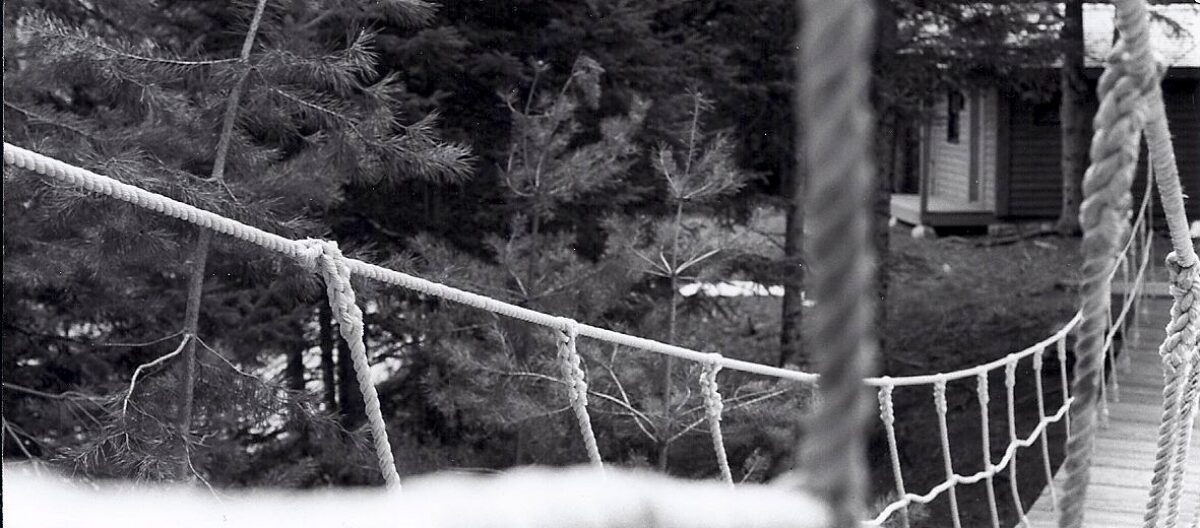July 19, 2002
One of the advantages of having the privy a goodly distance from your dwelling (there are some disadvantages as well), is the mandatory walk to and fro. This provides a convenient excuse to see a little scenery and complete a practical task at the same time. As I returned from my morning walk today, I noticed Linda had her “Pocket-Guide to Wildflowers” back out again. The berry plants are making an appearance around our place and the blue ones are just starting to turn color. When I was a child I remember my uncle saying, “You don’t eat blueberries that grow in the woods.” I took him at his word. According to Linda’s book, these are yellow clintonia (clintonia borealis), part of the lily family. They have a waxy green leaf almost like plastic, and flower in the spring with small yellowish bell-like adornments. In late July and August the upright cluster of blue berries form. (But do not eat!) The other plant is the red baneberry (altaea rubra). Its berries are already bright red, and they are hiding under our rope bridge and a few along the stream. Our little book points out that these delightful berries are poisonous. Although our dogs eat just about everything in sight, they do have smarts enough to leave these alone. This is all part of getting to know your environs first hand. Here is an excerpt from Scott Russell Sanders’ essay “Settling Down”.
It has taken me half a lifetime of searching to realize that the likeliest path to the ultimate ground leads through my local ground. I mean the land itself, with its creeks and rivers, its weather, seasons, stone outcroppings, and all the plants and animals that share it. I cannot have a spiritual center without having a geographical one; I cannot live a grounded life without being grounded in a place. In belonging to a landscape, one feels a rightness, at-homeness, a knitting of self and world...I am suspicious of any philosophy that would separate this-worldly from other-worldly commitment. There is only one world, and we participate in it here and now, in our flesh and our place.
